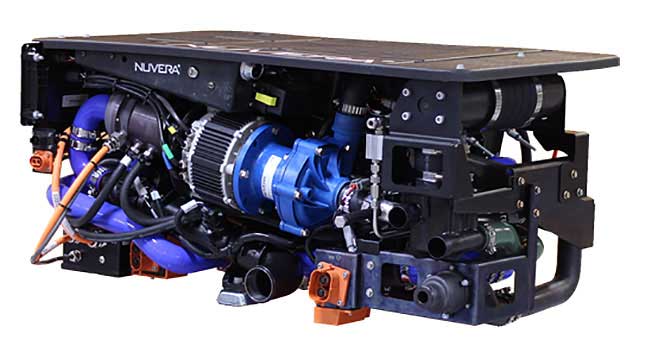
Fuel cell manufacturers are constantly looking for solutions that allows for maximum performance and efficiency. That is why the development of polyphthalamide for use in fuel cells is so important: the performance boost that they can provide is incredible.
Fuel cell development firm Nuvera Fuel Cells are now moving into the process of using BASF’s new Ultramid Advanced N polyphthalamide product. This resin, known as PPA resin, is used to help make sure that key components within the fuel cell assembly is designed to the specs needed. The latest generation of fuel cell, a 45-kW FC, is capable of using this resin to help ensure that performance boosts become the norm.
This has become a common area of discussion in that it will be used in transit hydrogen buses and hydrogen fuel cell trucks across China within the next three years. The various components made needing this resin include the thermostat housing, the check valve and the ejector; these require materials that can retain stability even during temperature fluctuation.
This helps to provide that in abundance, offering a solution that can handle both thermal and chemical resistance unlike previous products. They are also noted for their intensity, their strength, their dimensional stability, and various other factors.
Some components are going to be exposed to a variety of different temperatures due to cooling water, air, and hydrogen channels being used. The PPA compound, though, will help to ensure that parts are not degraded and/or weakened needlessly. By finding a lightweight solution that can take parts previously made from other materials without making it heavier, this helps to solve various problems all at once.
The rigidity and strength of the material as well as its ability to handle friction and wear and tear is very impressive. It also has been shown to have excellent temperature resistance, with the applicant designed to withstand temperatures as high as 105C for 10,000 to 20,000 hours.
As we continue to look for ways to deal with the various challenges involved with making the world cleaner, developments like this help to overcome hurdles. The development of this fuel cell solution is a very important step in the right direction.
Citation